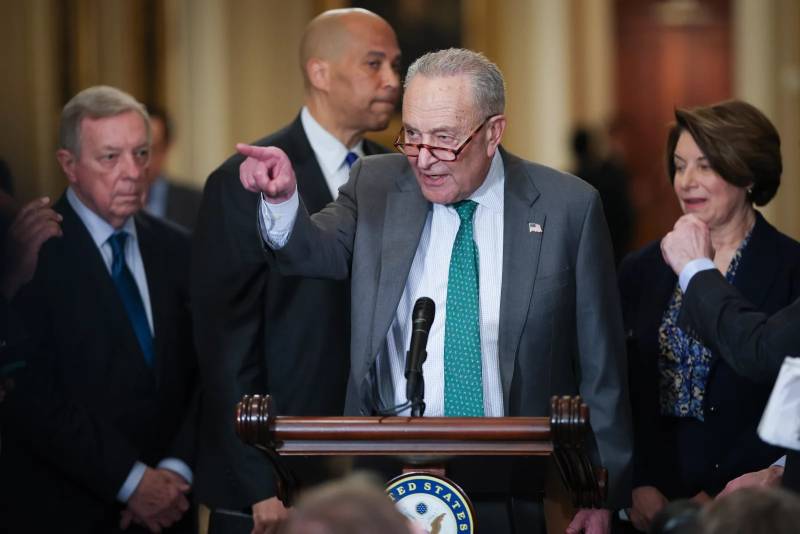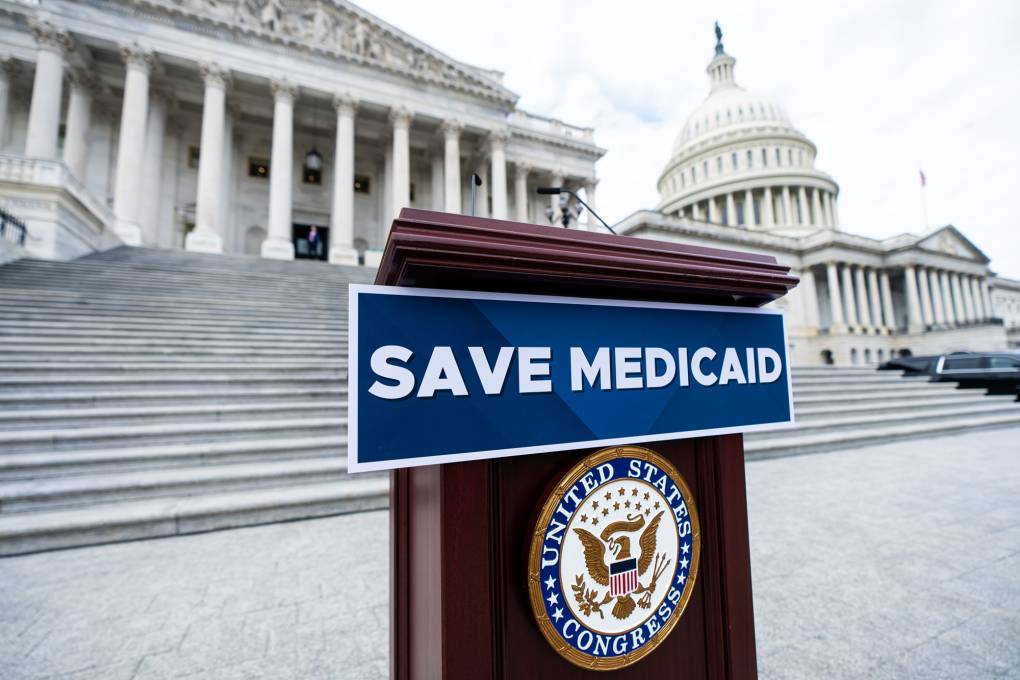So far, only one Senate Democrat, John Fetterman of Pennsylvania, has said publicly he would vote with the GOP to approve the CR. Fetterman said he wants to avoid a shutdown: “That’s chaos, and I will never vote for chaos.”
Schumer instead called for a four-week stopgap measure on Wednesday, which would keep agencies funded at current levels through April 11 as both parties negotiate on the annual spending bills.
This alternative gives Democrats the chance to say they are working to avoid any lapse in government funding.
Senate Majority Leader John Thune told reporters Thursday he was open to giving Democrats an opportunity to vote on their proposal, but he didn’t expect it to pass. He said he had not heard any offer from Democrats yet.
“If they want to vote on that in exchange for getting us the votes to pass to September 30, I think we’re open to that. But as you all know, the House is gone, so whatever happens is going to have to be, I think, the final action here,” Thune said.
In the hours that followed Schumer’s push for the short-term bill, two Senate Democrats up for reelection in 2026, Sens. Mark Warner, D-Va, and John Hickenlooper, D-Colo. said they would vote no on the GOP-backed measure. And although Schumer signaled his caucus was united, not all Democrats agree.
But Fetterman argued Schumer’s plan doesn’t have a chance.
“Shut the government down, plunge the country into chaos, risk a recession or Exchange cloture for a 30 day CR that 100% fails,” Fetterman said Thursday on social media platform X. “The House GOP CR will then pass the Senate because it only needs 51 votes. Total theater is neither honest with constituents nor a winning argument.”
Several Senate Democrats have yet to say how they’d like to vote on the plan.
“We have to make determinations how this affects Arizona,” Freshman Sen. Ruben Gallego, D-Az., told reporters ahead of Schumer’s announcement.
Many Democrats described the choice facing them it as a “pick your poison” moment with no easy answer. Helping Republicans pass the CR avoids a shutdown and issues they argue impact defense and other programs that are relying on increases instead of flat funding. But blocking it opens them up to the uncertainty of what the Trump administration would decide about who qualifies as essential workers and what other cuts they could impose during a shutdown.


